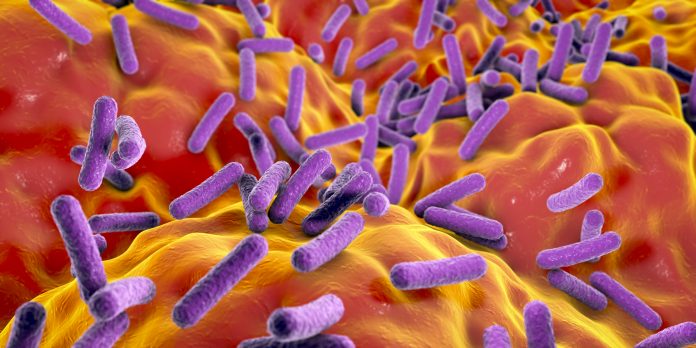
Researchers at Washington University School of Medicine have found in a mouse study that a strain of the gut bacteria Ruminococcus gnavus can help enhance the effectiveness of cancer immunotherapy. The research, published in Science, points to the potential of using R. gnavus as a probiotic agent to improve the response to anti-PD-1 immunotherapy.
“The microbiome plays an important role in mobilizing the body’s immune system to attack cancer cells,” said senior author Marco Colonna, MD, a pathology professor at WashU. “Our findings shine a light on one bacterial species in the intestine that helps an immunotherapy drug eliminate tumors in mice. Identifying such microbial partners is an important step in developing probiotics to help improve the effectiveness of immunotherapy drugs and benefit more cancer patients.”
The new findings spring from earlier research by Colonna, postdoc researcher Martina Molgor, PhD, and their colleague Robert D. Schreiber, PhD, professor of pathology and immunology at Washington University School of Medicine, in which they were able to completely eliminate sarcoma tumors in mouse models.
Their approach had two pieces: the inhibition of the protein called Triggering Receptor Expressed in Myeloid Cells 2 TREM2, which is produced by macrophages to stop T cells from attacking the tumor; they then showed that the anti-PD-1 immunotherapy was more effective at attacking tumors when TREM2 was blocked. In short, they showed that TREM2 plays a role in reducing the efficacy of the immunotherapy.
But the link to the bacteria in the gut microbiome came about due to a measure of serendipity. During an experiment that later informed the new research, the team found that TREM2 mice exhibited the same beneficial response to immunotherapy when they were housed with mice lacking the protein. Typically, mice were separated before treating them with the inhibitor, but had not been in this case.
Since mice that live together share microbes with each other, the investigators surmised that the TREM2 mice could have shown the same response to the anti-PD-1 therapy due to sharing a similar gut bacteria. With this hypothesis, the investigators, with additional collaborators including postdoc Blanda Di Luccia, PhD, who is co-first author of the study studied intestinal microbes of mice that had been successfully treated with the immunotherapy. As a result, they identified R. gnavus as a protein that showed expansion in the microbiome in responding mice, versus a lack of the same microbes in non-responding mice.
This closed the circle on data that has shown patients with R. gnavus resident in their gut microbiome have responded well to cancer immunotherapy. Clinical trials of fecal transplants of people with the bacteria have been shown to help unresponsive patients better respond to immunotherapy.
To confirm these effects, the researcher orally introduced R. gnavus to mice then treated them with the anti-PD-1 treatment. Doing this showed that the tumors of the mice shrank and this was even the case when TREM2 was present showing it hindered TREM2’s dampening effect on the immune system.
“Gavage of wild-type mice with R. gnavus enhanced anti–PD-1–mediated tumor elimination, recapitulating the effect occurring in the absence of TREM2,” the investigators wrote. “A proinflammatory intestinal environment coincided with expansion, increased circulation, and migration of TNF-producing CD4+ T cells to the tumor bed. Thus, TREM2 remotely controls anti–PD-1 immune checkpoint blockade through modulation of the intestinal immune environment and microbiota, with R. gnavus emerging as a potential probiotic agent for increasing responsiveness to anti-PD-1.”
Next steps for continuing research include working to understand the mechanisms that allow R. gnavus to assist in tumor rejection. The hope is that this could reveal novel methods of boosting immune response to cancer which could point to dietary approaches that may produce immune-activating metabolites.













